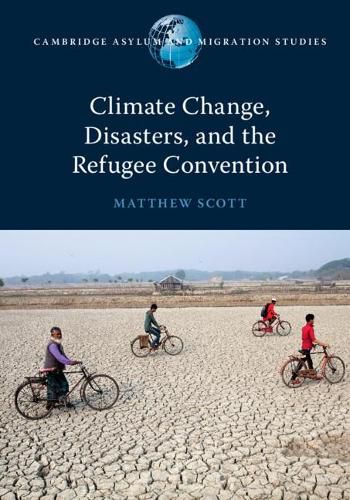Readings Newsletter
Become a Readings Member to make your shopping experience even easier.
Sign in or sign up for free!
You’re not far away from qualifying for FREE standard shipping within Australia
You’ve qualified for FREE standard shipping within Australia
The cart is loading…






Climate Change, Disasters and the Refugee Convention is concerned with refugee status determination (RSD) in the context of disasters and climate change. It demonstrates that the legal predicament of people who seek refugee status in this connection has been inconsistently addressed by judicial bodies in leading refugee law jurisdictions, and identifies epistemological as well as doctrinal impediments to a clear and principled application of international refugee law. Arguing that RSD cannot safely be performed without a clear understanding of the relationship between natural hazards and human agency, the book draws insights from disaster anthropology and political ecology that see discrimination as a contributory cause of people’s differential exposure and vulnerability to disaster-related harm. This theoretical framework, combined with insights derived from the review of existing doctrinal and judicial approaches, prompts a critical revision of the dominant human rights-based approach to the refugee definition.
$9.00 standard shipping within Australia
FREE standard shipping within Australia for orders over $100.00
Express & International shipping calculated at checkout
Climate Change, Disasters and the Refugee Convention is concerned with refugee status determination (RSD) in the context of disasters and climate change. It demonstrates that the legal predicament of people who seek refugee status in this connection has been inconsistently addressed by judicial bodies in leading refugee law jurisdictions, and identifies epistemological as well as doctrinal impediments to a clear and principled application of international refugee law. Arguing that RSD cannot safely be performed without a clear understanding of the relationship between natural hazards and human agency, the book draws insights from disaster anthropology and political ecology that see discrimination as a contributory cause of people’s differential exposure and vulnerability to disaster-related harm. This theoretical framework, combined with insights derived from the review of existing doctrinal and judicial approaches, prompts a critical revision of the dominant human rights-based approach to the refugee definition.